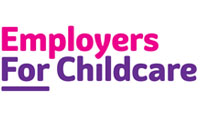All Party Group hears of crisis facing childcare sector in Northern Ireland alongside learning from international best practice
The All Party Group on Early Education and Childcare, chaired by Nicola Brogan MLA, met virtually on Thursday 24 November 2022. The meeting brought together more than 60 attendees including elected representatives, senior departmental officials and a wide range of stakeholders representing early education and childcare, the women’s sector, business, parents’ organisations and the broader third sector.
Learning for Northern Ireland from a recent study visit to Copenhagen
Presenters from the National Education Union NI shared the key findings from their recent study visit to Copenhagen, incorporating learning from the world leading Danish early years sector:
- Mark Langhammer, Regional Secretary for NEU
- Danielle Black, Regional Officer for NEU
- Roisin Hughes, early years practitioner
- Anne Rice, project manager for Newry Sure Start.
The study visit took place in September and involved representatives from the NEU, from NEU members working in early years settings, from Early Years – the organisation for young children, and representatives from the Department of Education and Stranmillis University College. The visit focused on the system of early childhood education in Denmark and also on trade union organisation and industrial relations within the sector. During their trip, the delegation visited a number of settings and engaged with BUPL – the Danish Union of Early Childhood and Youth Educators.
Amongst the findings set out in their report:
- Early Years sector in Northern Ireland has been ‘voluntaristic and undervalued’ – though this is slowly changing.
- Danish early educators, known as ‘pedagogues’, who are comparable to pre-school teachers or play workers in other countries, have their own specific Union and are educated to degree level, equivalent to primary teachers, nurses and social workers.
- Childcare centres in Denmark are an integral and independent part of Danish society, and learning is focused around play and development in a caring environment.
- Through the pedagogy, there is a strong value placed on children, whose views and perspective are at the heart, and who are given the freedom and choice to pursue their own interests with the support of well qualified and respected early years educators.
- Three key elements within the system are:
- Professionalisation of the workforce
- Monitoring for quality – with a focus on outcomes for children
- Unionisation – to ensure fair pay, terms and conditions.
The presentations, and discussion that followed, saw a strong focus on the importance of early intervention and securing funding for the sector that promotes a rich learning environment for young children, ensures that staff can be properly paid, at the same time as reducing costs for parents.
In the constructive discussion, alongside questions around the specifics of the Danish model, stakeholders shared the importance of building on the existing infrastructure and expertise of staff, the vital role of the voluntary and community sector as part of that, and the need to ensure equity within the pre-school education system in particular regarding funding across settings of all types. Critically, all stakeholders pointed to the value of our early years sector in helping to give children the very best start in life, as well as for its role in helping parents to work.
The full report of the study visit – Danish Lessons – is available on the NEU website.
A sector in crisis that needs both immediate and longer term investment
The group then heard impactful presentations from registered childcare providers, sharing their experience of rising costs and how this is affecting their settings. The presenters, although from different types of setting, shared similar issues and concerns that clearly resonated with all those who were at the meeting.
- Jess Eadie, Playwork and Early Years Manager, North Down YMCA
- Dolores McCormick, Registered Childminder
- Lisa Craig, Registered Childminder
- Maria McDonagh, Adventures Day Nursery.
In the face of rising cost of living pressures, which were clearly articulated, childcare providers are doing all that they can to reduce their costs, but reflected that some costs simply cannot be cut if they are to continue delivering a high quality service, and supporting the children and families who rely on them. And where they are employing staff, the reality is that they are unable to increase salaries to a rate that recognises the role of the early education and childcare workforce. As a result, experienced and qualified staff are being lost from the sector, going to higher paying roles, with potentially fewer hours, in other sectors.
Providers are facing the impossible choice of raising their fees for parents in order to cover their costs, or risk going out of business – at great cost not only to those families, but to our economy. As one presenter asked, if parents are priced out of affording the childcare they need – where will the children go?
The All Party Group heard evidence of large numbers of registered childminders who report that they are thinking of leaving the sector, or having to take on a second job, because of the financial pressure they are under. There was a sense of deep worry and anxiety across the sector, providers spoke of sleepless nights, of taking on loans, and of the pressure not just on them, but across the workforce, where morale is at a real low.
Alongside a need for financial support, providers also shared ideas for ways of relieving some of the pressure through other means and there was a discussion about the importance of ongoing engagement with the sector in relation to this, as well as to the planned review of the Minimum Standards, which was proposed as a key agenda item going forward.
There was a clear message that immediate support is urgently needed to prevent the collapse of our vital early education and childcare sector, and the devastating impact that this will have on children, parents and the wider economy. This has to come alongside essential work on the new Early Learning and Childcare Strategy, that is currently in development. Otherwise, there is a risk that by the time we see a new Early Learning and Childcare Strategy, there will be no sector to deliver on it. That message comes with deep concern about the impact of the ongoing absence of an Executive, which poses a real challenge for financial help and policy change that require Ministers in place to deliver the support that is so urgently needed.
Looking ahead
Chair Nicola Brogan closed the meeting by thanking all stakeholders for their engagement with the All Party Group this year and advised that the next meeting, the first in 2023, will take place virtually and will focus on the important role of early education and childcare in helping to lift families out of poverty and in reducing its effects.
Thanks to speakers, members and stakeholders for their engagement
Commenting on today’s meeting, Chair Nicola Brogan MLA thanked the speakers, the members, and all those who attended:
“Thanks to everyone who participated in today’s meeting. It was interesting to hear more about the early education system in Denmark and vital that we can incorporate international best practice into our own new Childcare Strategy, which needs to be both ambitious and bespoke to the needs of parents and the childcare sector here.
It was hugely worrying to hear from a range of childcare providers about the challenges they are facing during the cost of living crisis and the impact it is having on them and their staff, as well as on the parents who rely on their service. The reality is our childcare sector is facing into a crisis and urgent and immediate action is needed to prevent more childcare providers from going out of business or being forced out of the sector. For many, waiting on the new Childcare Strategy to be delivered, may be too late. The repercussions of this for parents, children and our wider economy and society are unthinkable.”
Find out more about the All Party Group on Early Education and Childcare
Further information on the All Party Group on Early Education and Childcare, including links to read more about previous meetings, is available here.
Employers For Childcare provides the Secretariat for the All Party Group on Early Education and Childcare – correspondence to aoife.hamilton@employersforchildcare.org or 028 9267 8200.





